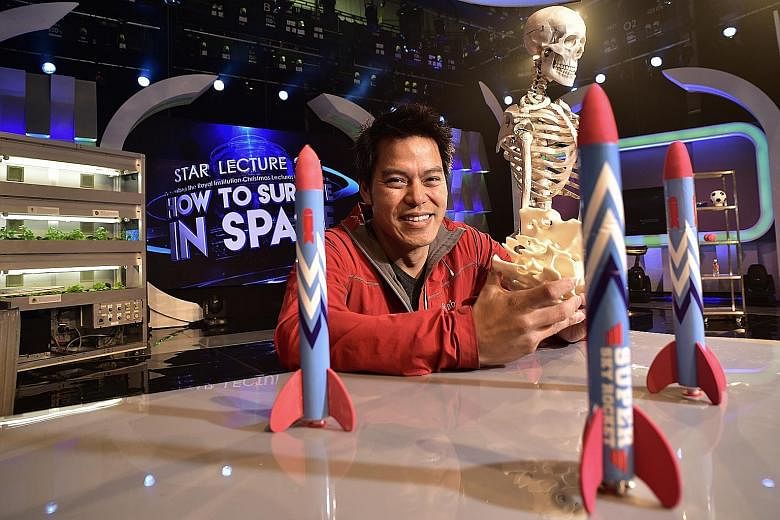Dr Kevin Fong's most vivid - and earliest - memory of the marvels beyond the earth's atmosphere happened when he was woken by his parents in the middle of the night to watch an American Apollo module docking with a Russian Soyuz craft in space in 1975.
"I must have been about five years old and I remember being quite fascinated by it," he said. "I love the idea of science and space and so like lots of children, I wished to be an astronaut. In my heart that was what I hoped to get to."
That dream has not materialised for the 45-year-old, but he believes he got a "pretty good consolation prize". After "writing many letters" to the National Aeronautics and Space Administration (Nasa) in the United States, he was allowed to join one of its programmes as a visiting research fellow.
He was then working as a junior doctor in Britain - after graduating with degrees in astrophysics and medicine - and would spend all his leave working at the Johnson Space Centre in Houston. "I kept going back to Nasa and tried to make myself useful to them. For a decade, I was at Nasa on and off," he said.
It was there that he got a glimpse into life in space. While spectacular, it came with many challenges.
Without gravity, even the simplest things that people take for granted, such as eating, sleeping, exercising and using the toilet, require special equipment. Many processes in the body also rely on gravity, such as the building of muscles.
"On earth you are always in the gym, even when you are not in a real gym, because you are carrying your body," he pointed out. But because of weightlessness in space, the muscles of the body are not constantly being used, and waste away at alarming rates, he added.
According to experiments on rats, about a third of thigh muscles wastes away in just nine days in space. Bones lose their density at a rate of 1 to 2 per cent a month, particularly in areas such as the neck and lower back.
Astronauts find themselves feeling faint for a few days after landing on earth because their hearts are no longer used to pumping blood upwards against gravity. Their balance and coordination are also impaired.
When Dr Fong worked for Nasa, he helped develop a device that uses reverse osmosis to remove bacteria from water at the space station, turning it into medical-grade fluid such as saline solution.
These days, the British citizen works as an air ambulance doctor in Kent, England, where he treats patients who are being flown by helicopter from healthcare facilities and accident scenes.
He also spends his time inspiring children and teenagers, such as through the Royal Institution Christmas Lectures - an annual series of lectures in front of a live audience of schoolchildren - last year.
Last month, he was in Singapore to give a lecture to secondary school students on how to survive in space, as part of the Singapore Science Festival in partnership with The Royal Institution in Britain.
The father of two hopes his lectures will get students interested in science. "The message I want to send is that space exploration is an adventure and it is just one of many possibilities that would be open to them should they choose the sciences," he said.

